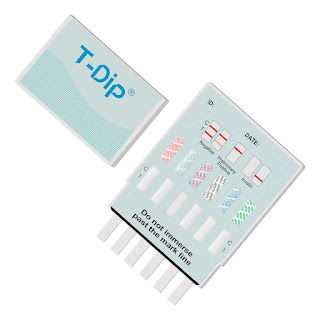Drug testing strips are a reliable and cost-effective method for detecting the presence of drugs in urine. These strips are designed to provide rapid results, making them ideal for use in drug testing programs, medical facilities, and even in the privacy of one's own home.
Drug testing strips work by using an absorbent pad that is dipped into a urine sample. The pad contains antibodies that are specific to certain drugs, which will react if the drug is present in the urine. The reaction produces a color change on the strip, indicating whether or not the drug is present.
One of the advantages of drug testing strips is that they are easy to use and require no special equipment or training. They can be used by anyone, from medical professionals to concerned parents, and provide results in a matter of minutes.
Drug testing strips are commonly used to detect a variety of drugs, including marijuana, cocaine, amphetamines, opiates, and benzodiazepines. They are also effective in detecting synthetic drugs, such as Spice and K2.
In addition to their ease of use and rapid results, drug testing strips are also cost-effective. They are much less expensive than laboratory testing and can be purchased in bulk for even greater savings.
Drug testing strips are an important tool for drug testing programs, as they can help identify drug use early on and can be used as a deterrent to future drug use. They can also be used in medical facilities to monitor patients who are taking prescription medications that have the potential for abuse.
It is important to note that drug testing strips are not foolproof and can produce false positives or false negatives. Factors such as drug metabolism, hydration levels, and the sensitivity of the test can all affect the accuracy of the results. Therefore, it is essential to confirm positive results with more sensitive laboratory testing.
In conclusion, drug testing strips are a reliable and cost-effective method for detecting the presence of drugs in urine. They are easy to use and provide rapid results, making them ideal for use in drug testing programs, medical facilities, and at home. While they are not foolproof, they are an important tool for identifying drug use early on and can be used as a deterrent to future drug use.





